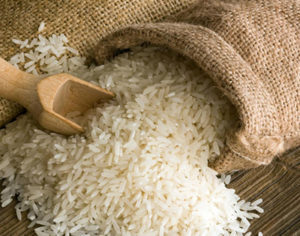Ghana increases determination to end food importation
 Government has assured Ghanaian farmers of providing them with the requisite infrastructure, incentives and technical support to maximize food production.
Government has assured Ghanaian farmers of providing them with the requisite infrastructure, incentives and technical support to maximize food production.
“The main focus of the Nana Akufo-Addo-led Administration is to transform the agricultural sector and curtail food importation,” Mr. Simon Osei-Mensah, Ashanti Regional Minister, noted.
The country currently, has an annual agricultural growth rate of 6.1 per cent, as compared to 3.5 per cent recorded last two years.
Mr. Osei-Mensah, in a speech read on his behalf at the inauguration of a World Food Programme (WFP) assisted warehouse at the Ejura Market in the Ejura-Sekyedumase Municipality, noted that they were determined to end food importation in the near future.
“Ghana for the first time in so many years, saw a significant bumper harvest in 2018, and was able to export some food crops, including plantain, to neighbouring countries,” he noted, saying, this was made possible through the ‘Planting for Food and Jobs (PfJ)’ initiative.
The 300 metric tonne capacity warehouse was built with generous contributions from Canada in line with the ‘Purchase for Progress (P4P) initiative, as well as the ‘Enhanced Nutrition and Value Chains (ENVAC) programme.
The Municipal Assembly, traditional authorities and Ministry of Food and Agriculture (MoFA) worked hand-in-hand with the WFP to plan and construct the facility, which is capable of storing six thousand 50 kilograms of grain.
It had been designed to enable some 17 farmer-based organizations store their maize under the management of qualified post-harvest expert warehouse managers.
Mr. Osei-Mensah was hopeful that the facility would help farmers to be able to store their maize during the bumper harvest season in order to get fair prices later in the year.
Ms. Rukia Yacoub, WFP Ghana Representative and Country Director, said the warehouse was intended to enhance farmers’ participation in markets and their integration into agro-processing value chains.
“This project is a testament to WFP’s capacity in warehousing, food supply chains and logistics, with the capacity to help position Ghana as a competitive and major player in the grain industry in West Africa,” she stated.
Source: GNA
